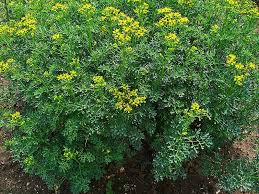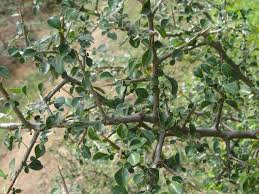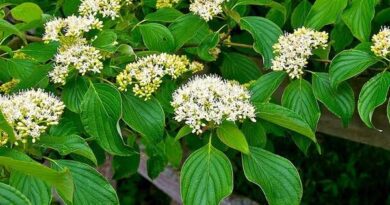Health Benefits and Uses of Uda Plant
Uda plant is also known as Xylopia aethiopica. This plant is native to West Africa and is commonly used in traditional medicine and cuisine. In traditional medicine, various parts of the Uda plant are used to treat a range of ailments such as stomach pain, toothache, fever, and malaria. It is also used as a natural insecticide.
In cuisine, the Uda plant is used as a spice to add flavor to soups, stews, and sauces. The dried fruit of the plant has a spicy, aromatic flavor and is often compared to black pepper.
Its worth noting that while the Uda plant has a long history of use in traditional medicine and cuisine, scientific research on its medicinal properties and potential side effects is still ongoing. As with any herbal remedy, it is very important to speak with a healthcare provider before using the Uda plant for medicinal purposes.
Read Also: Begonia Flowers – All you need to know
Description of Uda Plant

The Uda plant, also known as Xylopia aethiopica, is a small to medium-sized evergreen tree that is native to West Africa. It can grow up to 20 meters tall, and its trunk is usually about 30 cm in diameter. The Uda plant has a greyish-brown bark that is rough and fissured.
The leaves of the Uda plant are simple, alternate, and elliptical in shape, with a smooth margin and a glossy surface. The flowers are small, greenish-yellow, and are borne on short stalks at the base of the leaves.
The fruit of the Uda plant is a woody capsule that is about 2-3 cm in diameter, with a rough surface and a dark brown color when ripe. The fruit contains numerous seeds that are surrounded by a fleshy pulp.
The Uda plant is highly valued for its aromatic properties, and various parts of the plant are used in traditional medicine and cuisine. The dried fruit of the plant is particularly prized for its spicy, aromatic flavor, which is often compared to black pepper.
It is used as a spice in West African cuisine to flavor soups, stews, and sauces. In traditional medicine, various parts of the plant are used to treat a range of ailments such as stomach pain, toothache, fever, and malaria.
Health Benefits of Uda Plant
While there is still ongoing research on the medicinal properties of the Uda plant (Xylopia aethiopica), Below are 20 of the potential health benefits associated with this plant:
1. Pain relief: The Uda plant has analgesic properties that can help alleviate pain associated with conditions such as toothache, headache, and menstrual cramps.
2. Anti-inflammatory: The plant contains anti-inflammatory compounds that can help reduce inflammation and swelling in the body, potentially improving conditions such as arthritis and other inflammatory disorders.
3. Anti-infective: The Uda plant has antibacterial, antifungal, and antiviral properties that can help fight infections and promote healing.
4. Respiratory health: The plant is used in traditional medicine to treat respiratory problems such as cough, cold, and bronchitis, possibly due to its expectorant and bronchodilator properties.
5. Immune system support: The Uda plant has immune-boosting properties that can help strengthen the body’s defenses against infections and diseases.
6. Digestive aid: The plant has digestive properties that can help relieve digestive issues such as bloating, constipation, and diarrhea, possibly due to its carminative and anti-spasmodic effects.
7. Blood sugar control: The Uda plant has been shown to have hypoglycemic effects, which can help lower blood sugar levels in people with diabetes.
8. Heart health: The plant has been found to have cardio-protective properties that can help improve heart health and reduce the risk of cardiovascular disease.
9. Anti-cancer: Some studies have found that the Uda plant may have anti-cancer properties and may help inhibit the growth of cancer cells, potentially due to its antioxidant and anti-inflammatory effects.
10. Menstrual cramp relief: The plant has been traditionally used to alleviate menstrual cramps and regulate menstrual cycles, possibly due to its analgesic and antispasmodic properties.
11. Fever reduction: The Uda plant has been traditionally used to reduce fever and relieve symptoms associated with fever.
12. Anti-aging: The plant contains antioxidants that can help protect the body against the harmful effects of free radicals and may have anti-aging benefits.
13. Anti-malarial: The plant has been traditionally used to treat malaria and may have anti-malarial properties, possibly due to its antipyretic and anti-inflammatory effects.
14. Anti-ulcer: Some studies have found that the Uda plant may have anti-ulcer properties and may help protect the stomach lining from damage.
15. Skin health: The plant is used in traditional medicine to treat various skin problems such as eczema, rashes, and itching, possibly due to its anti-inflammatory, antifungal, and antimicrobial effects.
16. Weight loss: The plant has been found to have weight loss properties and may help promote weight loss when included in a healthy diet.
17. Arthritis relief: The Uda plant has been traditionally used to treat arthritis and may have anti-inflammatory properties that can help reduce joint pain and stiffness.
18. Liver support: The plant has been traditionally used to treat liver problems such as jaundice and may have hepatoprotective properties, potentially due to its antioxidant effects.
19. Anti-anxiety: The plant has been found to have anxiolytic properties that can help reduce anxiety and promote relaxation.
20. Cognitive function: The plant has been traditionally used to improve cognitive function and memory and may have neuroprotective properties, possibly due to its antioxidant effects.
Read Also: BellFlowers – All You Need to Know
Uses of Uda Plant

Below are some basic uses of the Uda plant (Xylopia aethiopica):
Culinary uses: The Uda plant is widely used as a spice in African cuisine due to its strong, pungent flavor. It is used to flavor soups, stews, and sauces and can also be added to marinades for meat and fish dishes.
Traditional medicine: The Uda plant has been used for centuries in traditional medicine to treat a variety of ailments such as diarrhea, fever, and respiratory problems. It is believed to have anti-inflammatory, antibacterial, and antifungal properties, among others.
Cosmetics: The plant has antimicrobial and anti-inflammatory properties that make it potentially useful in cosmetics and skincare products. It may be used as an ingredient in lotions, creams, and soaps.
Insect repellent: The Uda plant has insecticidal properties and may be used to repel insects such as mosquitoes and ants. It can be used in natural insect repellent formulations.
Soap making: The Uda plant is used in soap making for its fragrance and potential skin benefits. Its essential oil or powder may be added to soap formulations.
Flavoring agent: The Uda plant is used to flavor alcoholic beverages such as gin and beer. It adds a distinct flavor and aroma to the drinks.
Aromatherapy: The plant has a strong, spicy aroma that can be used in aromatherapy to promote relaxation and relieve stress. Its essential oil may be used in diffusers or added to massage oils.
Agricultural uses: The Uda plant has pesticidal properties and may be used as a natural pesticide in agriculture. Its extracts may be used to control pests in crops.
Animal feed: The plant is rich in nutrients and has potential medicinal properties, making it a suitable feed supplement for livestock. It may help improve animal health and productivity.
Ornamental plant: The Uda plant has attractive, glossy leaves and may be grown as an ornamental plant in gardens and landscaping. Its foliage adds visual interest to outdoor spaces.
Read Also: Why Term Insurance Could Be the Right Choice for You









